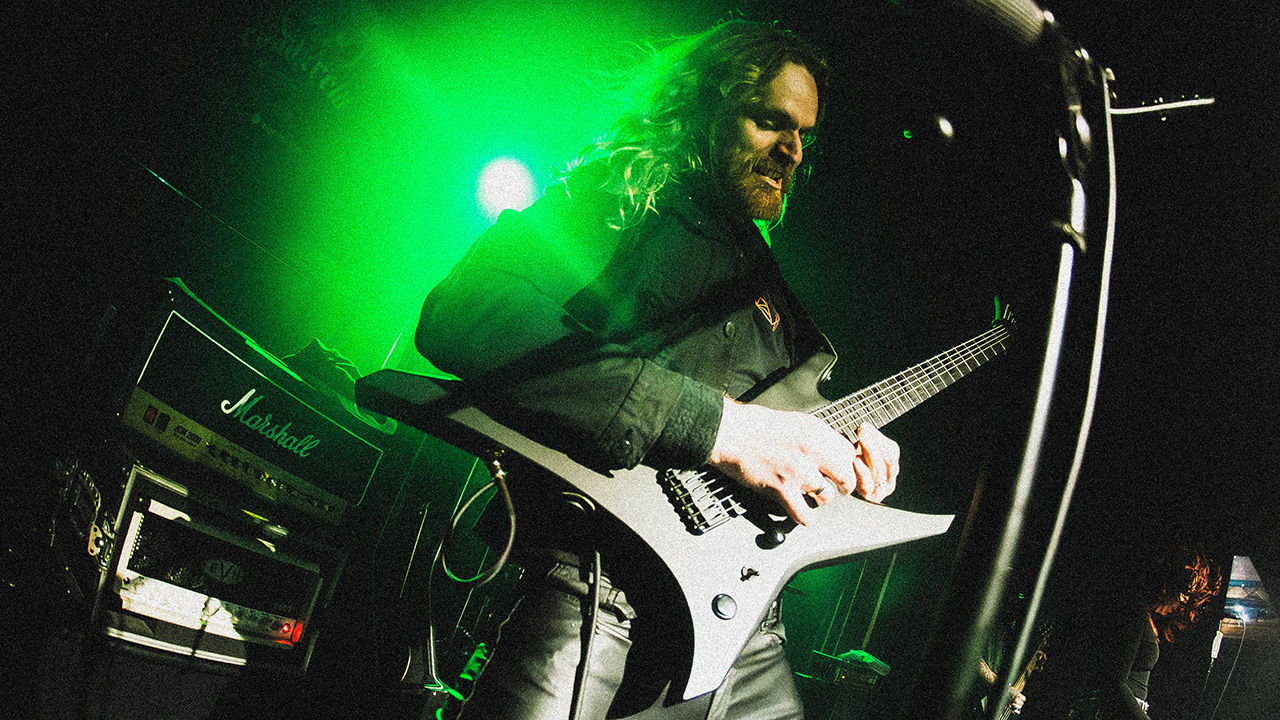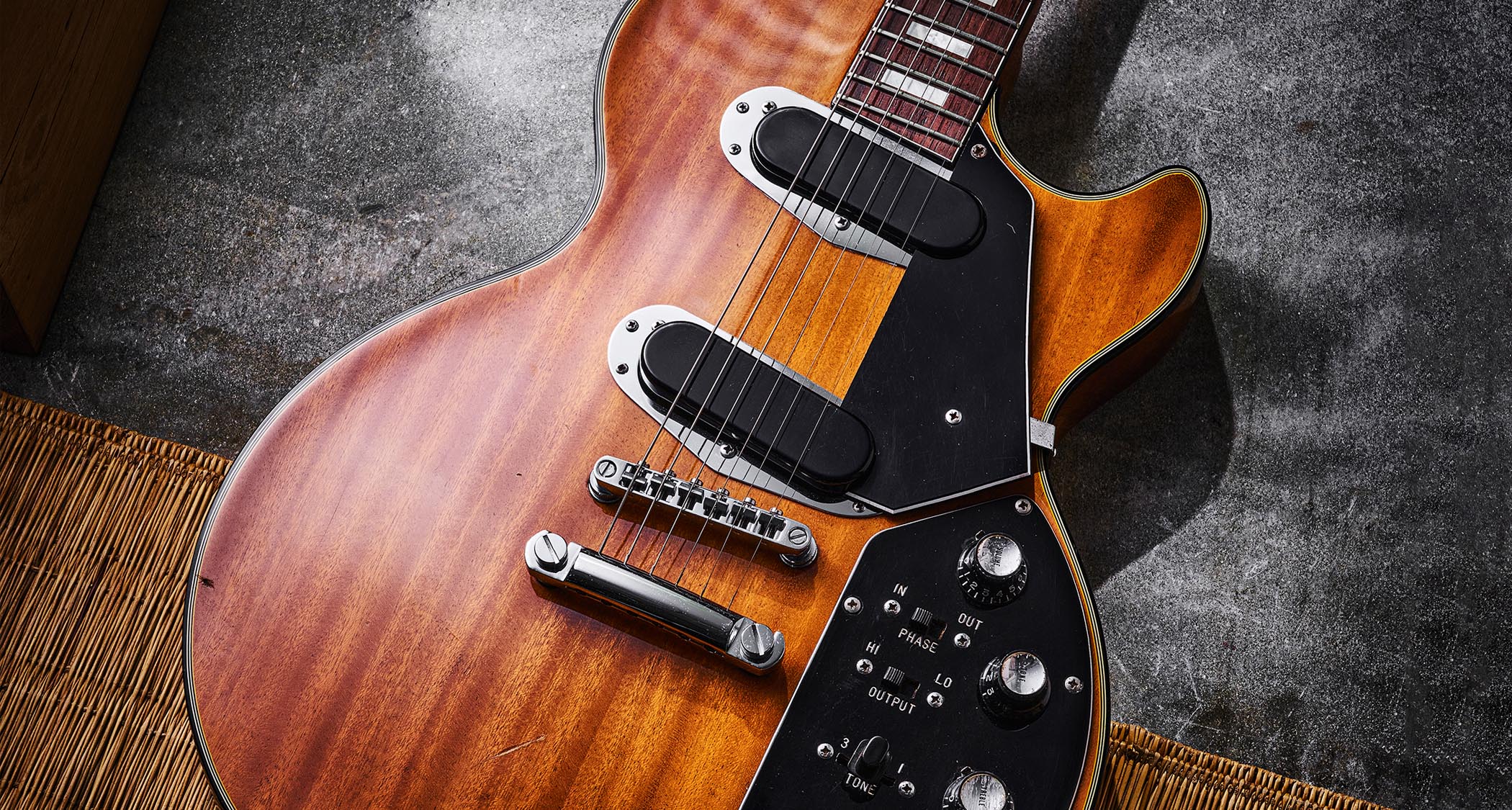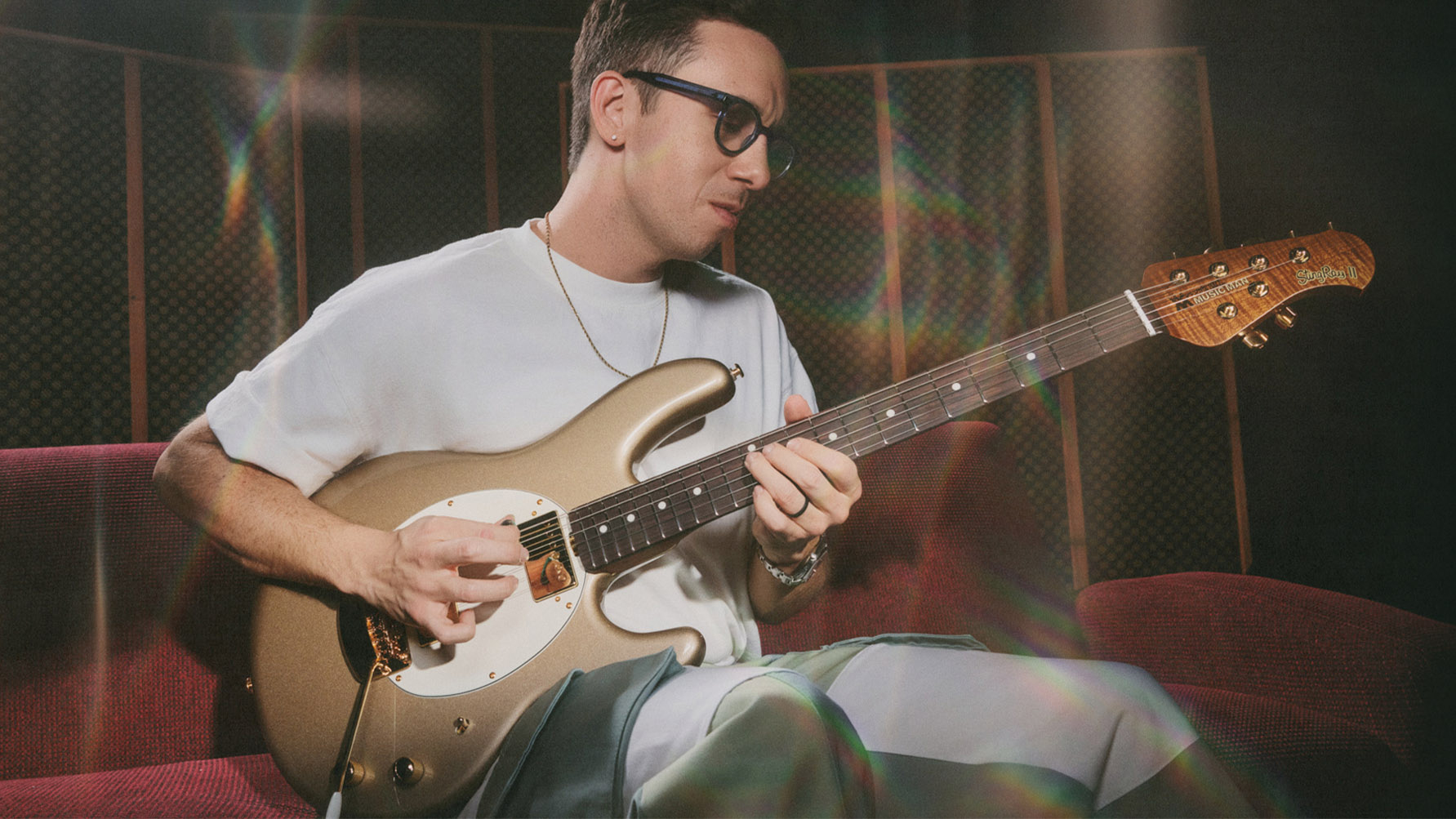The Sword on their musical evolution, gear epiphanies and secret pedalboard weapons
Ahead of the unsheathing of a triple-disc anthology, J.D. Cronise and Kyle Shutt take an epic voyage down memory lane…
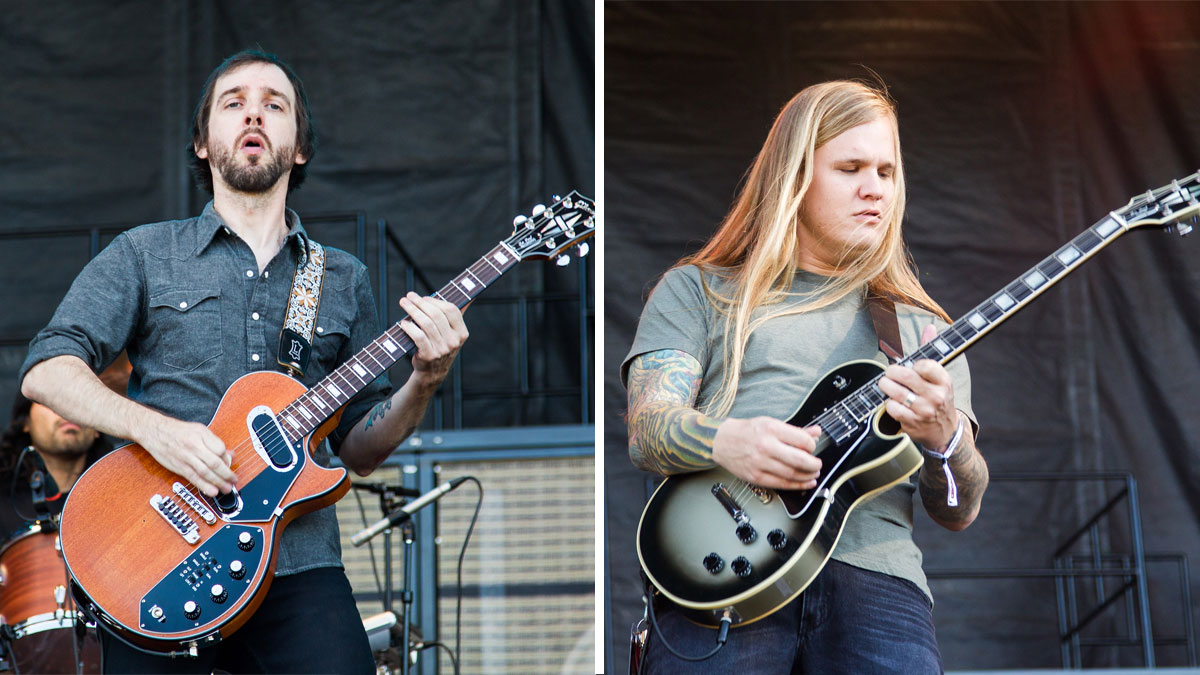
Fresh off hiatus to find themselves in a pandemic-enforced hiatus that has grounded their forthcoming tour with Primus, The Sword have arrived at a surreal point in their history.
But what better time to delve into that history than the present? The Sword have just spent over a year putting together Chronology 2006-2018 (CD) and Conquest of Kingdoms (Vinyl), deluxe boxsets collecting their biggest riffers and a cornucopia of unreleased material, and guitarists J.D. Cronise and Kyle Shutt join us on a socially distanced conference call to retrace their steps through riffs, guitars, and tones gone by.
The Sword were formed in Austin, Texas, back in 2006. Hopped-up on the heady riff-work of Led Zeppelin, Black Sabbath, Sleep et al they soon found an international audience on the back of the loose-leaf metal of their debut LP, Age of Winters. The anthemic Freya growing the buzz around the band after it was picked up for the videogame Guitar Hero.
In an increasingly digitized culture, The Sword reveled in anachronisms - large stacks, bigger riffs and epic arrangements that interpreted the heavy metal idiom at its most narratively-focused. There were concept records, such as Warp Riders, with album art and songwriting that suggested The Sword were holdovers from the ‘70s and just released from the amber.
“We had a bunch of material, different songs, different riffs, and I had this story in my head,” recalls Cronise. “It was a matter of figuring out which music we had that would fit which parts of the story. It was like scoring a film that didn’t exist. It was like, ‘What would work for a chase scene?’”
The Sword found a lot of early success, and that divided people. But that didn’t matter, so long as people were talking about them. There were high-profile tours, with Metallica, Guns N’ Roses, Kyuss.
When drummer Trivett Wingo was replaced by Santiago Vela III aka Jimmy, in 2010/11, their songwriting evolved again. “I think with knowing what Trivett was capable of and switching to Jimmy, having a different style, it just kind of changed the approach that I took when writing riffs,” says Cronise.
Get The Pick Newsletter
All the latest guitar news, interviews, lessons, reviews, deals and more, direct to your inbox!
“Especially with Used Future,” adds Shutt. “A lot of those songs came from beat patterns that Jimmy laid down and was just put into a Dropbox folder. So you were literally writing riffs to beats that already exist.”
I didn’t do any solos in the early days, and I think I did all my tracks in three-and-a-half hours or something like that…
Kyle Shutt
Over the course of seven studio albums, The Sword weaned themselves off the mega-watt approach to explore different styles of gain. Much of their musical evolution was seeded in the pursuit of new vintage tones. There’s a neat symmetry in that; the sense that no matter what stage they were in this evolution The Sword were always born too late somehow….
You have just put together an anthology, so let’s start back at the beginning. What are your memories of recording Age of Winters?
J.D. Cronise: “It was very D.I.Y. We recorded it at Brian Richie’s house, basically in his room, and various places around the house. We used the whole house as our recording studio and it was done piecemeal when we had time to do it.”
What gear were you using back then?
Cronise: “That’s a good question. I wish that I had documented that sort of thing better. I know for a lot of my tracks on that record I was using an SG Faded. I don’t remember what year it was but it was one of those ones with the real thin finish.

“It had the crescent moon inlays and that was one of the only SGs I ever owned, and I played that just ‘cos it was really easy to play. I found that I could track really fast with it. I used that and a Les Paul Custom, but mostly the SG.”
Kyle Shutt: “I didn’t have a whole lot of gear at the time. I was very young when the band first started. I had a Guild S-100. I think it was a ’71. It was in a natural finish with the clear pickguard, and I used that for all my tracks. My amp, I think was Brian’s Laney AOR 100, and I used a [Maxon DS-830] Distortion Master, and that was on the whole time.
“I didn’t do any solos in the early days, and I think I did all my tracks in three-and-a-half hours or something like that… In Brian’s kitchen! It was an absurdly short amount of time for the amount of copies that album sold. [Laughs]”
Of course, Freya blew up and you were everywhere. Had things changed by the time you recorded Gods of the Earth?
The thing about The Sword was that it was divisive from day one. You either loved it you just totally hated it and wouldn’t shut up about how much you hated it
Kyle Shutt
Cronise: “Well we did that in a little studio in Austin. That was the most challenging for me personally, because me and the engineer did a lot of the producing and the mixing of the record. I just remember a lot of long hours in the studio staring at the mixing board.”
Shutt: “We bit off a lot. ‘Let’s do it to tape! Let’s do it ourselves to tape!’ It was a lot of learning technical things.”
Cronise: “I had the most to do with how that record sounds and it is the one that a lot of people think sounds the worst! [Laughs] The thing is, I listen to it and it’s like, ‘Yep! But that’s exactly what I wanted to sound like.’ I think the cymbals are too loud but I turned them up on purpose. Love it or hate it, that’s how it was intended.”
Shutt: “It’s a lot of people’s favorite. The thing about The Sword was that it was divisive from day one. You either loved it you just totally hated it and wouldn’t shut up about how much you hated it. It worked to our advantage. It was great.”
Dividing opinion is good though. At least people have an opinion.
Shutt: “Totally!”
Cronise: “Way better than being ignored.”
How do you look back at your playing and composition then?
Cronise: “Well it is weird. It’s not necessarily what I would do now but it is exactly what I wanted to do then. But yeah, listening to those old arrangements and riffs and stuff… Wow! It was just so proggy, really extended arrangements with so many parts and so many little nuances and—”
There was no being five minutes late with Metallica. You know exactly what is expected of you and where you need to be every night
J.D. Cronise
Shutt: “—so many notes! When we did Warp Riders we had just come off some crazy world tour with Metallica, when three years before we were working in a video store and a photocopy store. We dove head-first into the music and that was all we did. I hate to say it was overthought, but it was prog, it was thinking man’s music.”
Touring with Metallica must have made you such better players.
Cronise: “I am sure it did. Yeah, the regimentation of it and having to be ready to go every night at an exact time. There was no being five minutes late. I definitely think it drilled us hard. It was very predictable. You know exactly what is expected of you and where you need to be every night, but at the same time it is also nice to play a show in a club where nobody is going to lose enough money to buy a Mercedes if you’re not onstage at exactly 10 o’clock!
Shutt: “That’s a real quote! [laughs]”
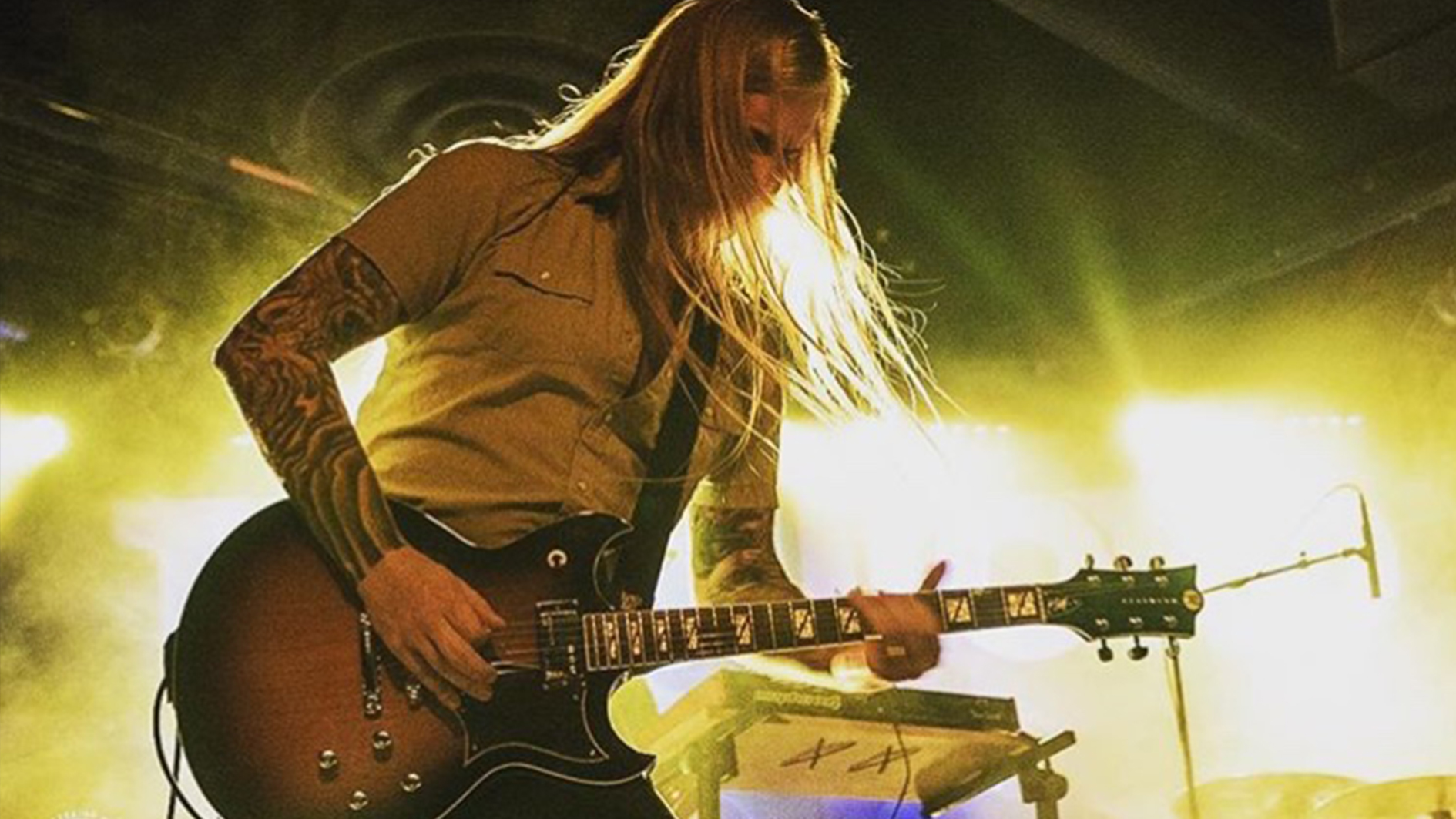
Tell us about how your relationship with gain changed over the years. You’ve dialed it back a bit.
Cronise: “I wanted to explore things that were a little more classic-sounding, vintage-sounding. We really did the super-high-gain thing on the first few records and I just got into playing more vintage-style guitars and playing vintage fuzz pedals.
“We tracked Used Future with little tube combo amps. You can’t make every record with Orange stacks and dimed Big Muffs. You’ve got to try some different things.”
Shutt: “Like, J.D. said, you can only do so much diming your amp and going for it, making these crazy towering arrangements, super-metal stuff.
“When a lot of people didn’t like the fact that High Country or Used Future were toned down a little bit, they’d come see us live and it was just as heavy as the old stuff. When you compared our old material with the new it all made sense. I think that everyone who saw us realized that.”
On the first few records, we went in with all of our gear, what we would take to a show, and that is how we recorded, probably, the first four records
J.D. Cronise
Cronise: “On the first few records, we went in with all of our gear, what we would take to a show, and that is how we recorded, probably, the first four records. But on the last couple of records, we have worked with producers who have had a little bit more input, different perspectives, and to us, like Kyle said, they are tools to take advantage of.”
And that in and of itself is a process of discovery.
Cronise: “It’s a little bit more experimental. It was definitely a refreshing thing to record with these little manageable Princetons rather than a full half-stack in the studio.”
Is that a sign of maturity, appreciating the power of diming a small amp…
Cronise: “Well! I don’t wanna use the M word too much but… [Laughs]”
Yet the Princeton is a refined choice...
Cronise: “Yeah, I used the Princeton and I have gotten really into a Vox Tone Bender. I used that for a lot of my stuff, to the point where I had to buy one after we were done with the record. They are not cheap but I loved it so much that I had to have one."
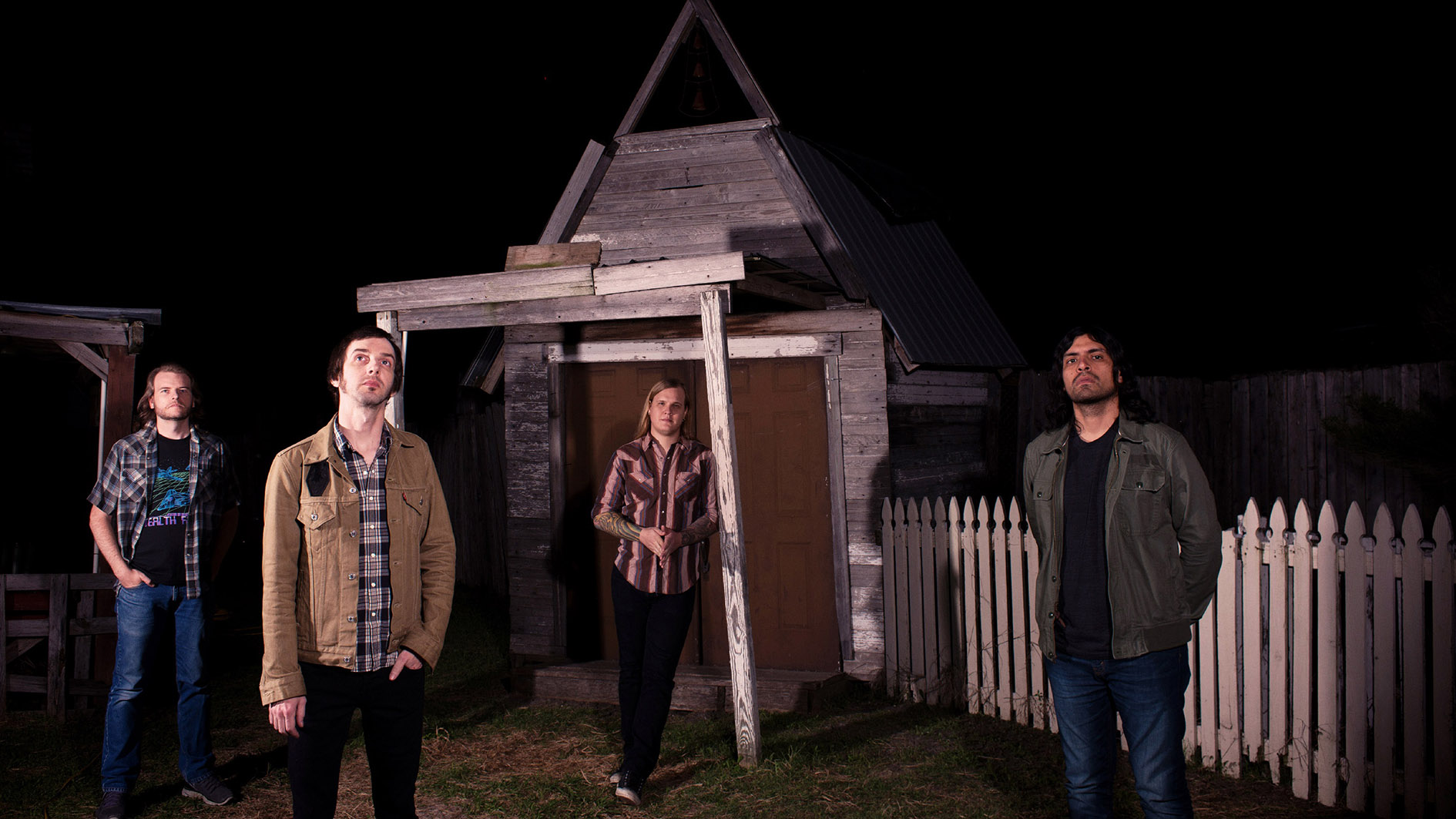
Well, this is a good time to ask about gear epiphanies. What have been the big ones for you?
Shutt: “When I was younger I thought you had to have this specific amp, and that is what you need to rock, or this guitar or this pedal. I don’t know when I realized this but it sort of became apparent that you need to be able to have a discernible style no matter what you are playing through.
“That’s when I got more into pickups, swapping out things, and trying to get away from Orange and Marshall - no disrespect to them but everyone plays them. I needed an amp, so I got Brooks Harlan from the band War on Women to build me two versions of this 50-watt amp [Big Crunch One Knob] that I just love. It is louder than God.
It is not the ‘70s anymore. There are very few arena rock bands left with huge crews and semi-trucks to carry around their Marshall stacks. It is just not a thing anymore
J.D Cronise
“And I partnered up with Reverend Guitars to make my own signature model. I really tried to focus on what my sound is and what I needed to have that. I wouldn’t call it an epiphany but it was a gradual evolution from having played a lot of gear.”
Cronise: “Yeah, I’d say the same. It’s my tastes changing and realizing that you don’t need these certain things to play a certain type of music. I think that many of the gear companies use that to market the gear. In heavy music, bigger is better… all that sort of thing, and I think people are learning nowadays that it is not.
“It is not the ‘70s anymore. There are very few arena rock bands left with huge crews and semi-trucks to carry around their Marshall stacks. It is just not a thing anymore. I mean, it is for a very few bands but those bands won’t be around forever and people are realizing you don’t need that stuff to have a loud guitar sound or have a heavy guitar tone.”
Well stage volume has changed for a start. You can’t play so loud.
Cronise: “I remember a couple of years ago seeing Uncle Acid & the Deadbeats here in Asheville and they sounded amazing! It was so heavy and loud, and you couldn’t even see their amps they were so small. You had to get right to the front of the stage to see what they were playing.
“They were playing little combos and it sounded great. It wasn’t necessarily an epiphany but it was a demonstration. ‘See? You don’t need big stacks to be heavy.’ A lot of those European bands have a good appreciation of vintage gear and how to get good sounds.
“With me, my personal gear philosophy is: I don’t just use vintage gear, but if the vintage gear is better I’d rather use that, and if there is a point in time when a certain thing was best, I’m going to use that one. I use a mix of all kinds of stuff but there is a bit of me that thinks, ‘Well they did a great one in the ‘70s so why am I going to buy a shitty one from the ‘90s?
I am a big fan of one-knob pedals but I can deal with three if necessary. One or two is ideal
J.D. Cronise
“I like things that are simple. If the new thing is new and shiny but has more buttons and more functions and a bunch of crap I don’t need, I would rather have the MkI or MkII version with no extra knobs, no extra features.”
Like if there are more than three knobs on a guitar pedal, you start to get a bit anxious…
Cronise: “Precisely. Any more than three... You are absolutely right. I am a big fan of one-knob pedals but I can deal with three if necessary. One or two is ideal.”
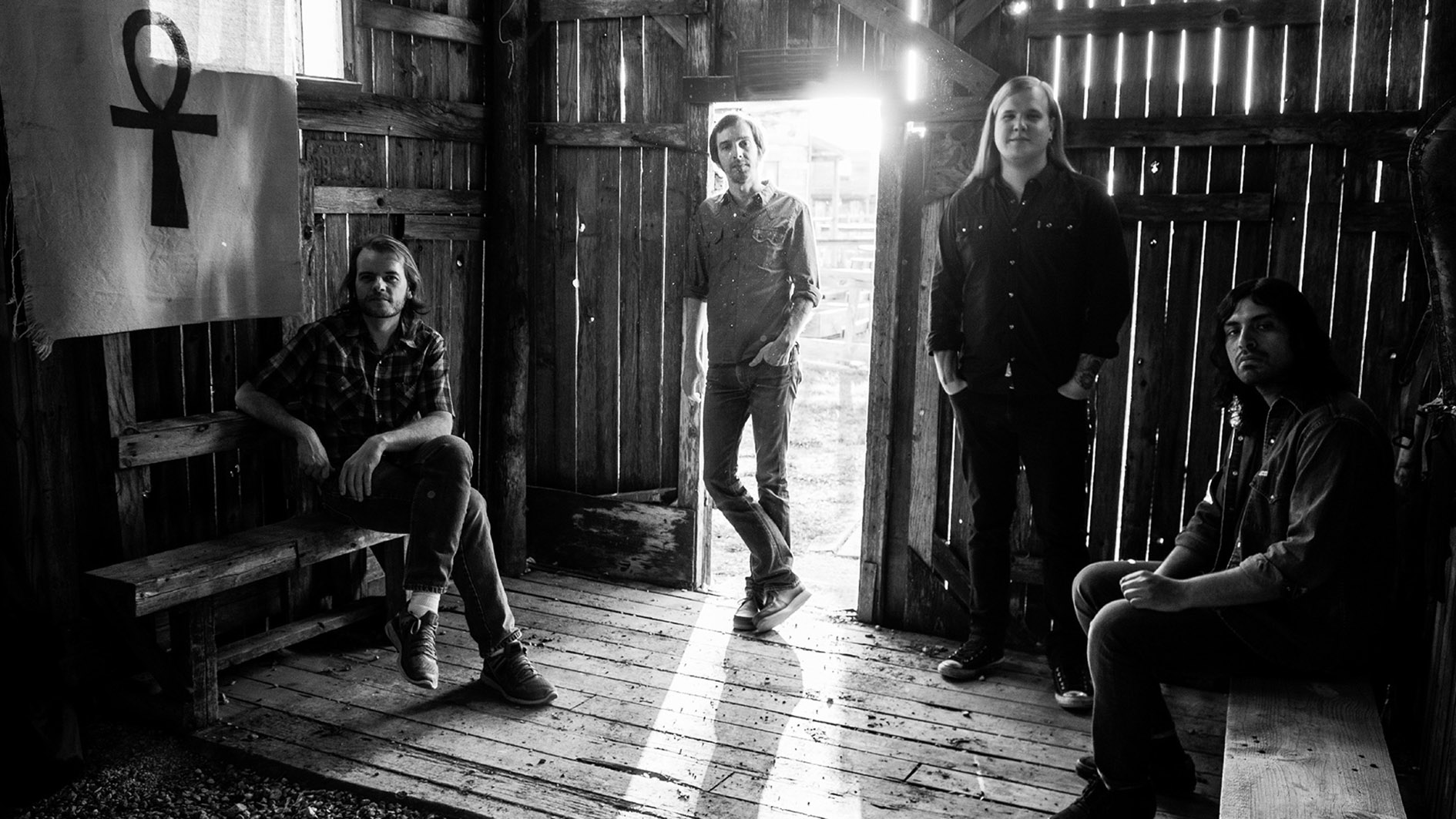
Were there any pedalboard secret weapons?
Cronise: “Yes, it’s called The Pedal, Hush Systems’ The Pedal—not to be confused with the Rocktron Hush pedal. It is the predecessor, the two-channel version. I always used it. It squashes noise; it’s like the best noise gate ever, and it adds a little compression and I have always had it on my ‘board and I probably always will. I have two, three or four of them in a closet somewhere.”
Shutt: “And they are so cheap. Every time we would see one we would just buy one.”
Cronise: “They are discontinued. You used to be able to get them in discount pedal bins for 50 bucks or something. I have hoarded them. That’s my secret weapon. Everything else I have used has pretty much changed.
“As far as fuzz or distortion, I’ve gone through a ton of those. I have always used a [MXR] Phase 90. That has been my tried and trusted phaser forever, but that’s not a main part of my sound. But Hush Systems’ The Pedal, that’s the secret sauce.”
These days it takes more for me to write a song than it did 10 or 15 years ago. I have to feel like that song needs to be written
J.D Cronise
Shutt: “Especially back in the day when we were playing loud, with so much gain. We had to get rid of that gnarly feedback for clean stops and it was just the best. It wasn’t really a gate; it was a hiss-reducer or something like that?”
Okay, last one. We started at the beginning, but what’s next for The Sword?
Cronise: “Well, man, it’s kind of in limbo until things get moving again. We’ve been on this hiatus for a couple of years and kinda laying low, and this anthology came together. It just so happened that when this came out we got this offer to do the Primus tour. It wasn’t necessarily a premeditated return to action.”
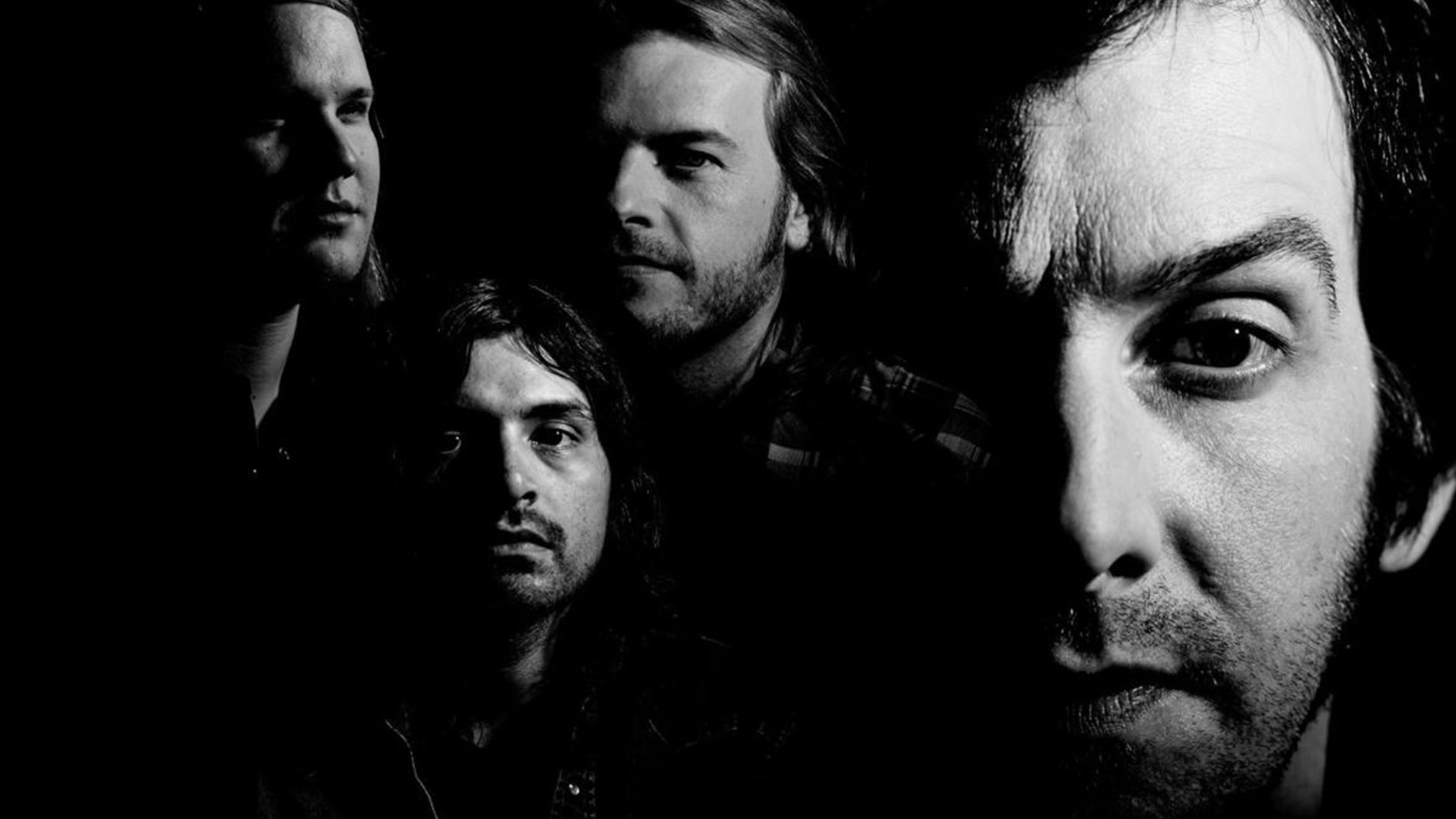
Will there be new material?
Cronise: “Yeah, maybe. These days it takes more for me to write a song than it did 10 or 15 years ago. I have to feel like that song needs to be written. These days I am a little more thoughtful. Does this song need to exist? Am I saying something I haven’t said before? Am I expressing something that no one has expressed better before me? So I don’t write as prolifically as I used to. If new Sword material materializes at some point then it will! [Laughs]”
Shutt: “Haha!”
Cronise: “But, that being said, I do miss playing live. Even though we might not have a record coming out in the foreseeable future, I still like playing shows. I am still proud of our work, which is why we are putting out this anthology to begin with. We still want to play live together because that is where all the fun is.”
Shutt: “Totally.”
Chronology 2006 - 2018 and Conquest of Kingdoms are out on June 19 via Craft Recordings.
Jonathan Horsley has been writing about guitars since 2005, playing them since 1990, and regularly contributes to publications including Guitar World, MusicRadar and Total Guitar. He uses Jazz III nylon picks, 10s during the week, 9s at the weekend, and shamefully still struggles with rhythm figure one of Van Halen’s Panama.
Cory Wong and Joe Satriani are right – knowing where the notes are on the guitar is a skill all players should take seriously. Here are 10 ways you can master the fretboard
“Bob is fearless. He’s always willing to take chances with music of any kind”: Bob Weir joins Joe Satriani and Sammy Hagar for Best of All Worlds guest spot – and plays Hagar’s Gibson Explorer
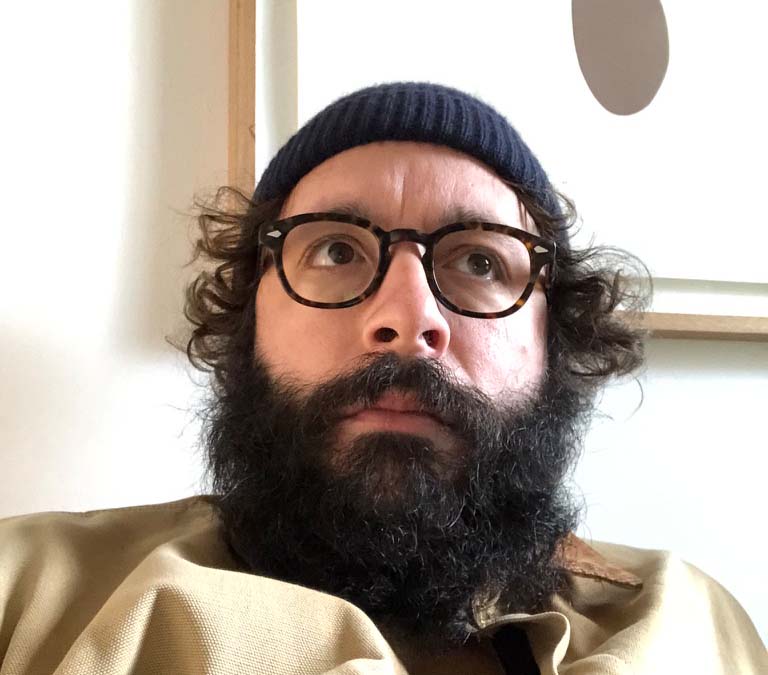
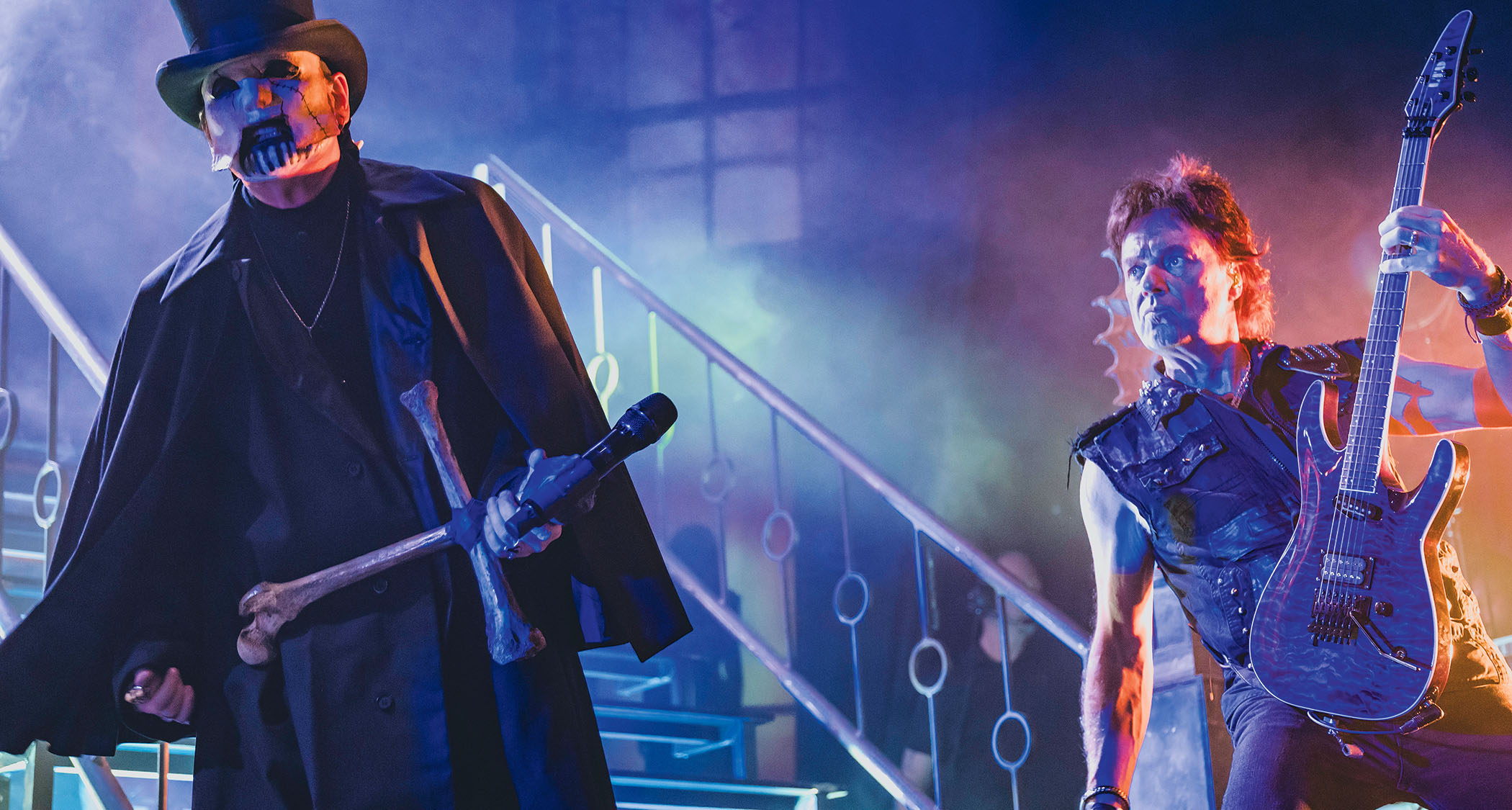
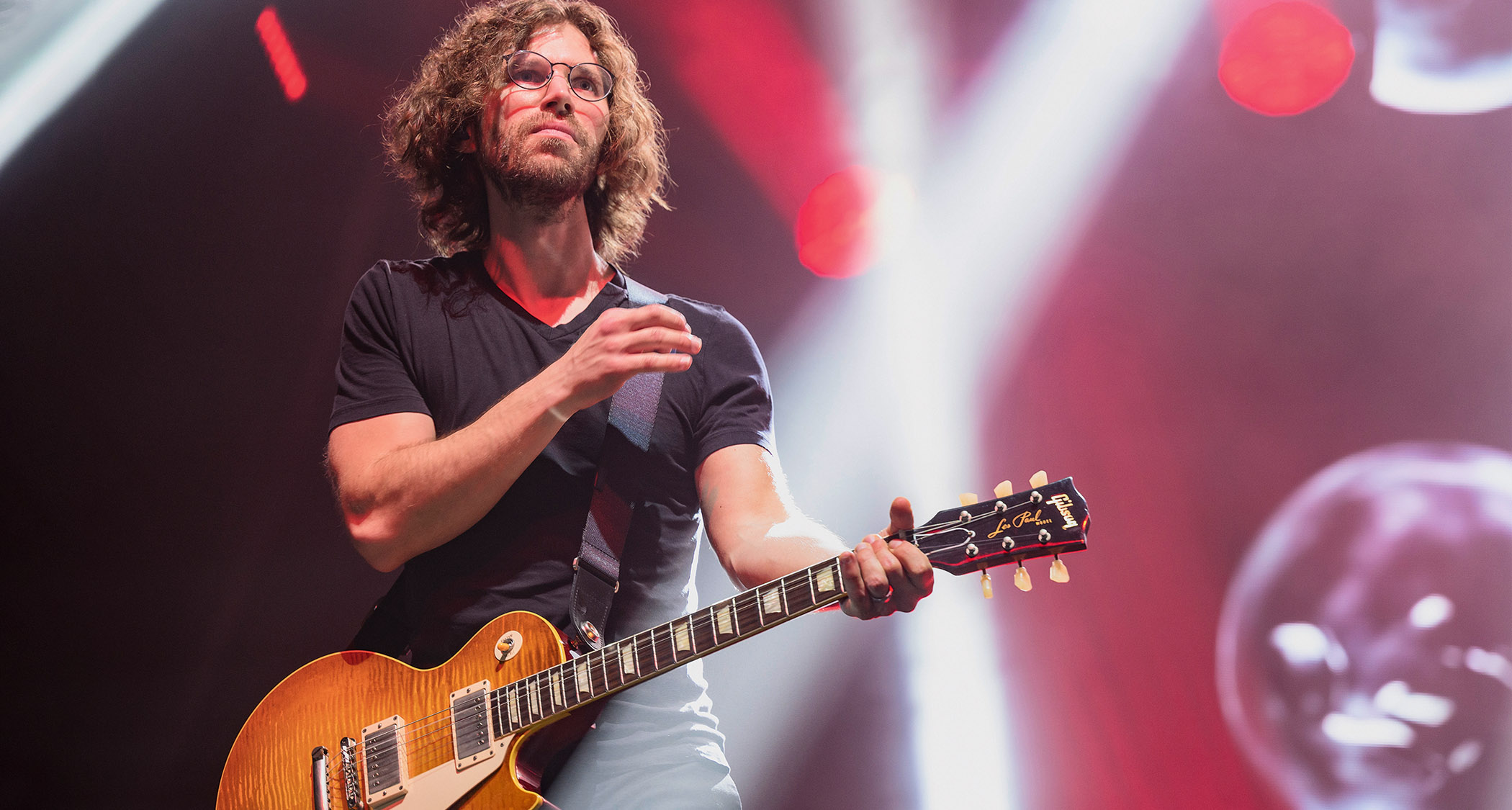
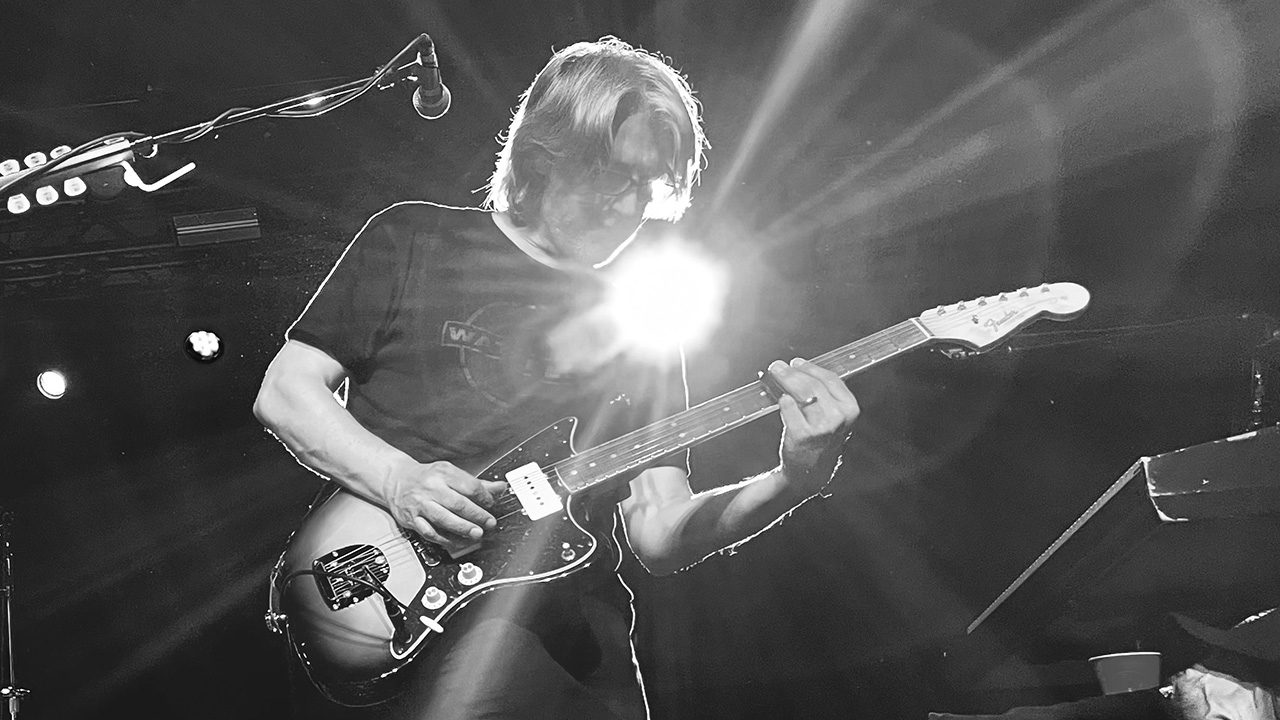
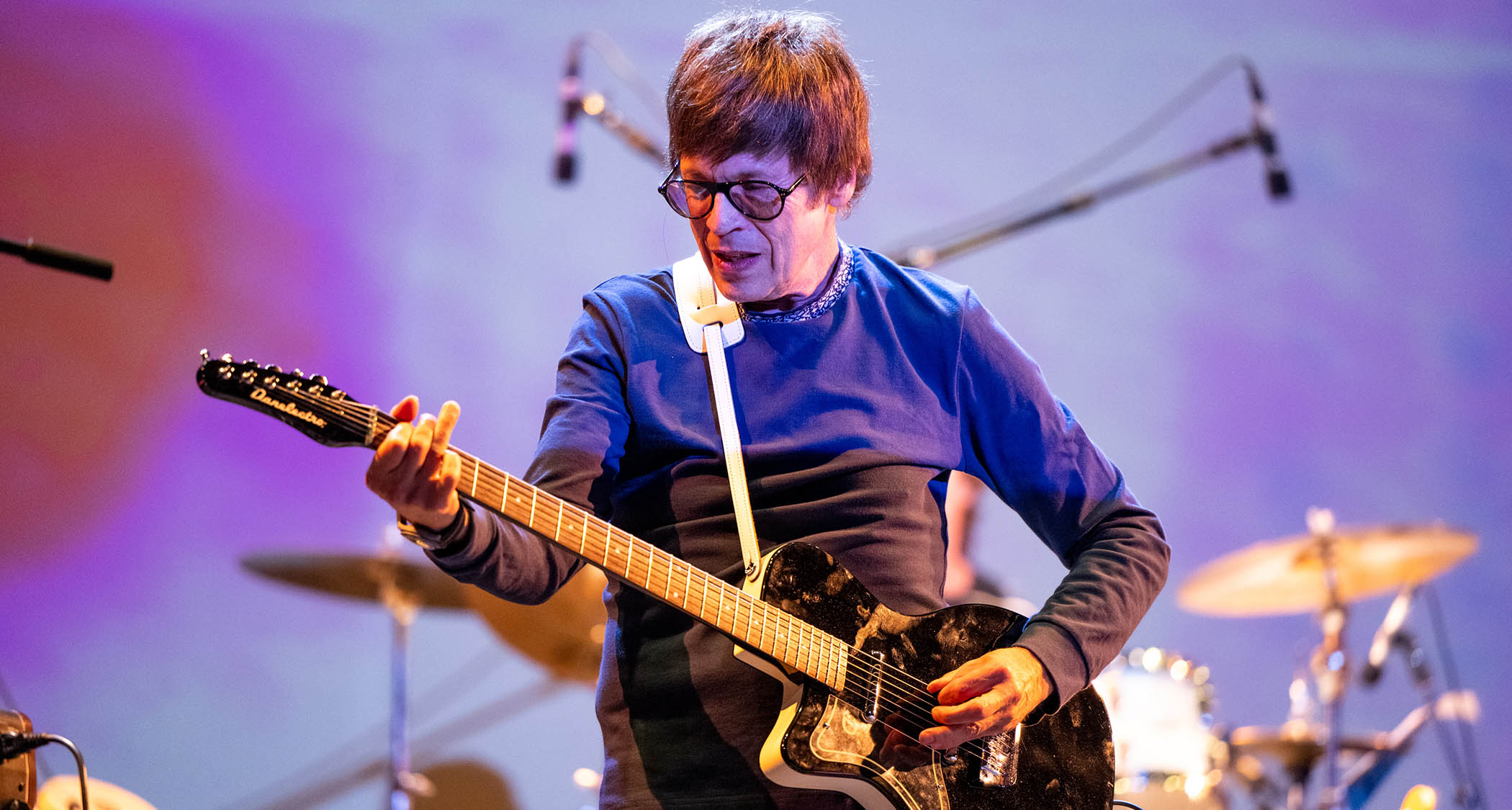


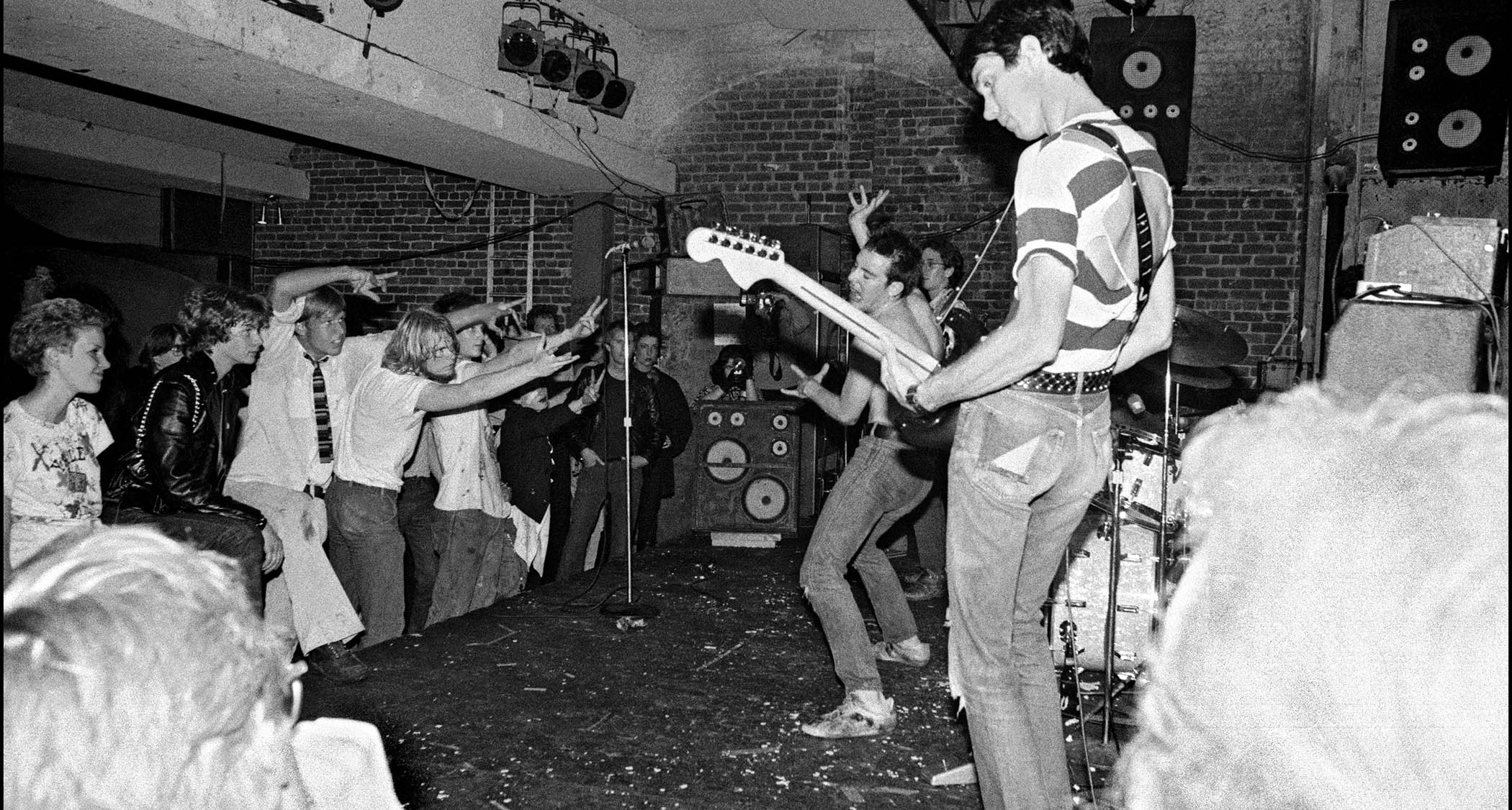
![The Night Flight Orchestra all glammed-up in stage clothes and photographed against a green backdrop: guitarists Rasmus Ehrnborn [second from left] and Sebastian Forslund [fourth from right]](https://cdn.mos.cms.futurecdn.net/Wy6UcSKUxjjiWvEWzYf3y3.jpg)
